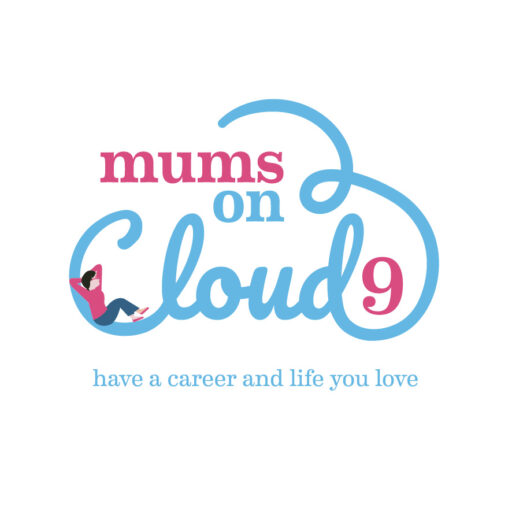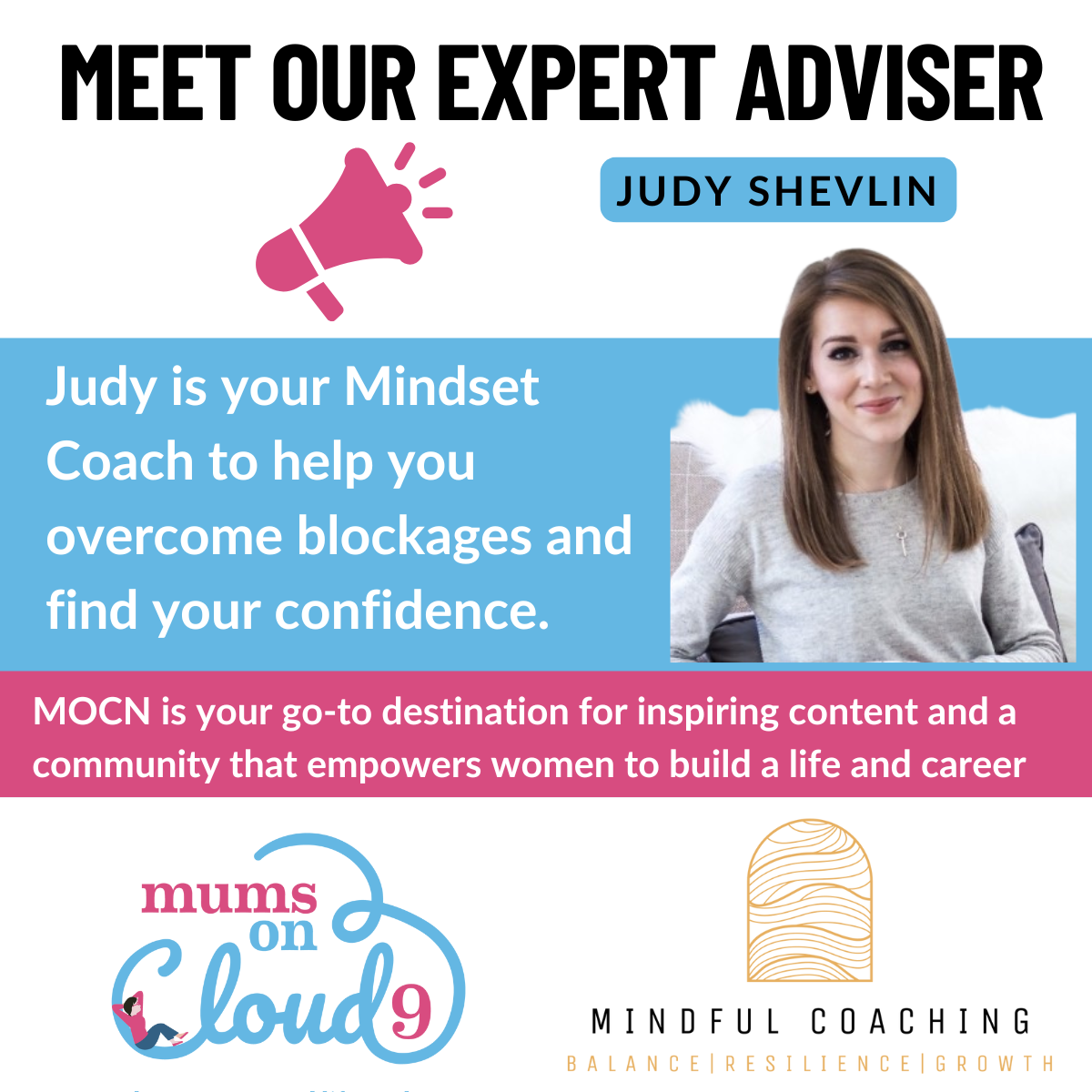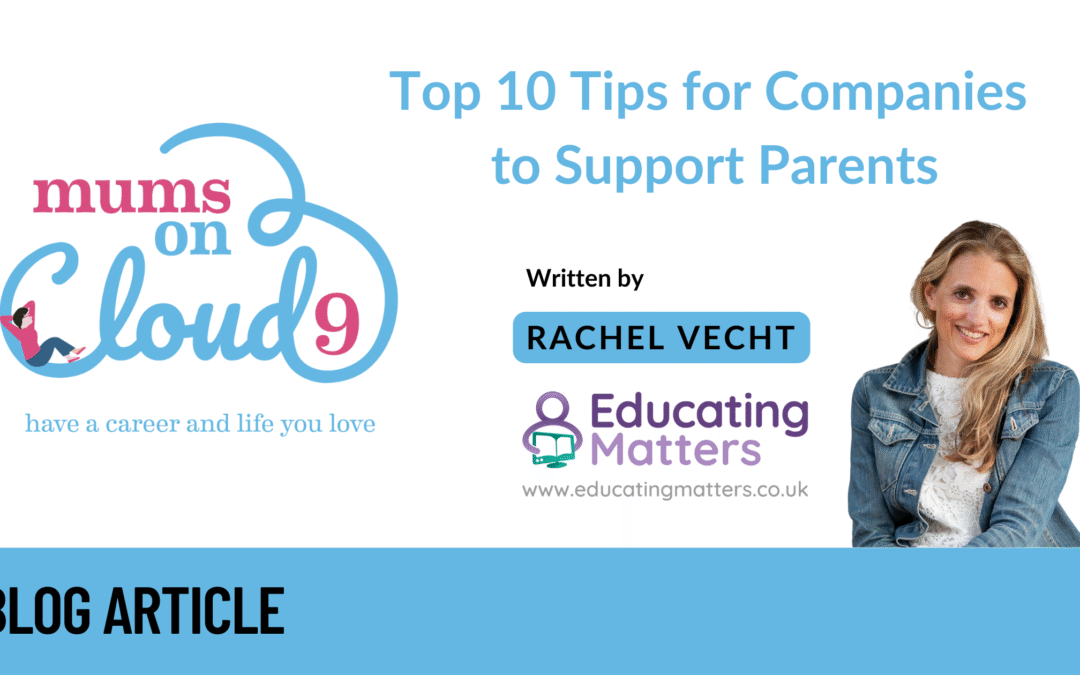The Mindset Shift: Finding Calm, Confidence, and Success By Judy, Founder of Mindful Coaching
Meet Judy Shevlin, our Expert Mindset Coach and Founder of Mindful Coaching. In this blog she talks about the mindset shift and how you to take steps to build your confidence and calm in your career or life.
“Hi everyone, It’s a real pleasure to be writing for the Mums on Cloud nine community today. Before launching Mindful Coaching, I spent 15 fulfilling years working in the health service as a Mental Health Professional. That frontline experience gave me a deep understanding of wellbeing and a longstanding passion for helping people truly optimise it. Now, as a coach and like many of you, as a working mum of two young, energetic boys! I know firsthand the constant balancing act life throws at us.
My journey from Clinical Mental Health to coaching was driven by seeing how much potential we all have to proactively build our mental resilience and genuinely flourish, not just cope day-to-day. My coaching approach is really a blend of that background – rooted in evidence-based strategies and clinical expertise, but delivered with a nurturing, empathetic style, always focusing on the whole person and putting them at the centre of everything I do.
Today, I want to talk about something close to my heart and especially relevant when navigating the fast-paced, often demanding world of tech: making the mindset shift. Sounds simple, maybe, but it’s powerful. It’s less about a quick fix and more about consciously choosing the ‘software’ that runs our inner world, using principles from positive psychology.
The Tech Tightrope: Pressure, Ambition, and the Quest for Wellbeing
The tech industry is exciting, innovative, and full of opportunity. But let’s be honest, it can also be relentless. My husband works in AI, and honestly, just listening to him talk about the latest developments makes my head spin! It feels like the goalposts are constantly moving. It just really brings home how quickly things evolve in tech, adding to that pressure to constantly learn and adapt on top of everything else. Whether you’re deep in code, designing solutions, managing complex projects, leading teams through change, or navigating tricky client negotiations, the pressure can feel immense at times.
I often chat with women in tech, and so many share that feeling of constantly spinning plates. Maybe you recognise it? That sense of being brilliant at what you do, highly capable perhaps hitting targets, delivering complex solutions, keeping up with industry trends, maybe mentoring others and trying to keep all the home-life ticking over. School runs, household logistics, maybe even trying to find a tiny pocket of time for yourself amid the never ending to do list. It’s exhausting just thinking about it! You might feel stretched so thin sometimes that you worry you might just snap. You need that inner resilience, that ability to stay calm and focused. In my experience, resilience isn’t something you ‘just have’. It’s a skill you can develop. You need to be able to stay centered when the emails are piling up, deadlines are looming, client expectations are high, and your little one has brought home the latest virus from daycare. Sound familiar?
Alongside this pressure, there’s often a powerful ambition. Perhaps you see the path ahead, wanting to climb higher, achieve more, make a bigger impact in your field whether that’s leading larger teams, closing bigger deals or driving strategic initiatives. You might be looking for strategies, for ways to unlock that next level of potential. But crucially, you likely want to do it without burning out in the process. You want success, yes, but not at the cost of your wellbeing. Maybe you’re seeking a more structured way to grow, wondering how to harness your strengths even more effectively to reach your goals sustainably.
Regardless of which parts of this picture feel most familiar, the common thread is often the internal landscape: our mindset.
What Do We Mean by the ‘Mindset Shift’?
From practicing as a Mental Health Professional, I saw firsthand how our thoughts directly impacted our feelings and actions. It wasn’t just about diagnosing illness; it was about understanding the whole person. Using evidence-based tools to target our negative thinking directly impacts our behaviour. At Mindful Coaching, we believe that true transformation begins with awareness. Becoming more mindful of our responses to life’s stressors, recognising stress triggers, understanding our personal values, and acknowledging our internal strengths.
Making the “mindset shift” simply means becoming aware of our default thoughts, the automatic reactions, the ingrained beliefs, the inner critic’s voice and consciously choosing kinder and more positive ‘self talk’. It’s about moving from autopilot to taking the controls.
So, how do we move from understanding the idea of a mindset shift to actually putting it into practice? Like all new skills it comes with practice. Change comes from integrating small, consistent techniques into your daily life.
Here are four practical approaches to get you started:
Building Your Mindset Toolkit: Practical Strategies
- Challenge the Autopilot Negativity: Our brains are wired with a negativity bias which is a hangover from caveman days where we spent our days scanning for threats. In modern life, this often means dwelling on what went wrong, catastrophising minor setbacks, or letting the inner critic run riot, particularly when we feel overwhelmed.
Try This: Catch the negative thought. When you feel that wave of stress or self-criticism (“I can’t cope,” “I messed that up,” “I’m not good enough”), pause. Acknowledge the thought without judgment (“Okay, brain, I hear you saying X”). Then, gently challenge it. Is it 100% true? What’s a more balanced perspective? Even finding one small counter-evidence helps. (“Okay, that meeting was tough, but I did handle that tricky question well.”) This isn’t about toxic positivity; it’s about realistic optimism, helping you reframe challenges. Exploring how to build this ‘pause and reframe’ muscle is something many find incredibly freeing. Clients often share how putting simple strategies like this in place helps reduce anxiety quite significantly, even after just a few weeks.
- Focus on Your Strengths: We often obsess over our weaknesses, pouring energy into ruminating about perceived flaws. Positive psychology flips this, encouraging us to rediscover and acknowledge our innate strengths aka the things we’re naturally good at and enjoy doing.
Try This: Take 10 minutes this week. Reflect on a recent success, big or small. What personal strengths did you use? Were you creative in finding solutions? Resilient when facing a setback? A strong communicator? A strategic thinker? Make a list. Now, think: How can I use one of these strengths more intentionally this week, either at work or home? Leaning into what you do well is not only more effective, it’s energising! It builds confidence and momentum. Unpacking these strengths and strategically applying them to career goals without sacrificing wellbeing is a powerful journey, helping you clarify priorities and move forward with more confidence.
- Cultivate ‘Micro-Moments’ of Positivity: Shifting your mindset isn’t just about tackling the negative; it’s about actively noticing and creating the positive. This builds emotional reserves and supports sustained growth and wellbeing through simple mindfulness techniques.
Try This: Practice gratitude – sounds cliché, but it works. At the end of each day, note down three specific things you’re grateful for. They don’t have to be huge. “My morning cup of tea,” “My son’s funny joke.” Also, actively savour small positive moments. When something nice happens consciously pause and soak it in for 10-15 seconds. Let it land. These small acts compound, shifting your brain’s focus over time. Building these simple, sustainable practices is often key for those committed to long-term personal growth.
- Embrace Imperfection & Self-Compassion: This is huge, especially for capable, driven women. We need to ditch the damaging myth of perfection. Striving for excellence is great; demanding flawlessness is a recipe for misery. Self-compassion means treating yourself with the same kindness and understanding you’d offer a good friend when things go wrong, it’s a cornerstone of that nurturing, empathetic style I believe is so important.
Try This: When you make a mistake or fall short, notice your self-talk. Is it harsh? Critical? Ask yourself: “What would I say to a friend in this situation?” Then, try directing that kinder voice inwards. Acknowledge the difficulty (“This is really tough right now”), validate your feelings (“It’s okay to feel disappointed”), and offer yourself encouragement (“You did your best,” or “What can you learn from this?”). This was a game-changer for me personally. Learning to cultivate this compassionate inner voice is perhaps one of the most profound shifts someone can make, helping them navigate change with confidence.
The Journey, Not Just the Destination
Making the mindset shift isn’t an overnight fix. It’s a practice, a continuous process of learning, adjusting, and growing. Some days you’ll feel like you’ve got it sussed, other days the old patterns will creep back in and that’s okay…we are human!
The goal isn’t to eliminate all negative thoughts or feelings but to change your relationship with them. My mission is to guide clients to become more aware, leverage their strengths, and respond more mindfully to life’s inevitable ups and downs. It’s about building skills to navigate challenges more effectively, using goal-setting frameworks where helpful, and consciously choosing thoughts and actions that align with the life you want to live, one where you can thrive in your tech career and maintain your wellbeing, feel ambitious and balanced, pursue growth and enjoy the present moment.
We’ve all heard the phrase; prevention is better than a cure. Think of working on your mindset as preventative care for your mental and emotional health. As a coach, I see the incredible transformations that happen when people commit to this inner work. Sometimes people are initially doubtful about how coaching can help but often find that exploring it with consistent support and a kind, professional approach truly changes their day-to-day life for the better, helping them unlock personal and career growth.
If any of this blog resonated with you, perhaps it’s time to explore what making the mindset shift could look like for you.
Taking the next step on your mindset journey is to have a conversation – that’s why I offer a free, no-obligation 30-minute chat to discuss your unique situation, explore your goals, and how I can help you unlock your potential with confidence and clarity. Book Your Free Initial Coaching Session Here.
Thank you so much for reading, and a huge thanks to Heather and the Supermums team for having me.
Judy
Principal Coach, Mindful Coaching





